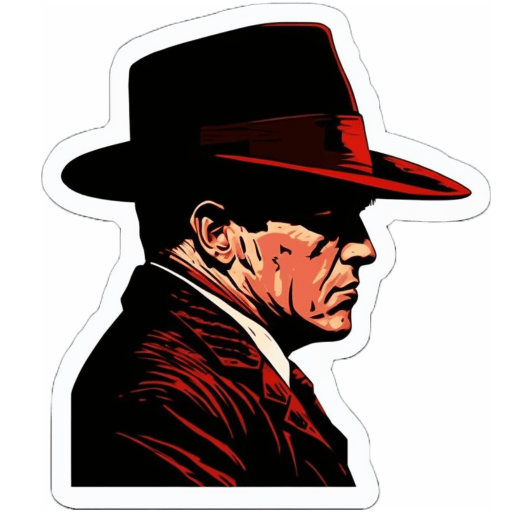This story concerns the next stage of Robert Warren’s war on Frank Balistrieri. To provide a bit more context, I’ve decided to talk about who Robert Jendusa was.
Robert Jendusa was born in Milwaukee in 1921 to Sicilian immigrants Joseph Jendusa and Virginia D’Amico. Through marriage, he was connected to Milwaukee Mafia figures John Pernice (1888-1977) and Joseph Gumina (1902-1995), but these are loose links and there’s no indication he had any involvement with anyone with organized criminal links. His parents were not from Santa Flavia or Prizzi, as most other Milwaukee Sicilians were. I personally believe he had no allegiance to anyone in organized crime.
Jendusa became more widely known during the race riots of 1967-1968. Oddly, one study of the interaction between the Black and Polish communities identifies him as Polish. He was not (which may alter the conclusions drawn by the study).
In early June 1970 Attorney General Robert Warren objected to the Milwaukee Common Council’s granting of liquor licenses to taverns associated with Frank Balistrieri and asked fo them to not renew the licenses.
On June 8, 1970, after golfing in Mequon, Aldermen Robert Jendusa and William Drew stopped in at Fazio’s on Jackson around 11:30pm. By coincidence, Frank Balistrieri stopped in just after midnight and the three men had a brief talk.
On June 30, 1970, WTMJ-TV aired an editorial criticizing the Common Council for granting tavern licenses to Frank Balistrieri’s relatives and associates. The following night, Joseph Balistrieri went on air to fight back against the “libels, treacheries and dreams leveled by unscrupulous politicians.” He said, “Too long have we Balistrieris been silent. And too long has our silence not only given spur to our detractors but has also served as an inference of legitimacy to their baseless accusations. The situation reached the acme of intolerance earlier this week when certain public officials, acting on half truths and lies, would have stopped members of my family and friends from the most basic right of earning a living and supporting their families in an honest, licensed enterprise. We’re all too familiar with the spectacular charge leveled against my father by Senator McClellan, that he is a member of that mythical organization whose name isn’t worth mentioning. We categorically deny this.” Balistrieri further called McClellan “that grandest of all character assassins”.
July 1, 1970: Alderman William Drew was questioned that morning by the state attorney general’s office concerning a meeting Drew had with Frank Balistrieri. That afternoon, Drew went before the Common Council and made a speech asking that Balistrieri’s tavern license be reinstated over the objections of AG Robert Warren. Drew said to the other aldermen, “I fully realize I’m holding myself up to a great deal of harassment from the attorney general, which began this morning, and apparently from the district attorney.” Drew denied the meeting was prearranged.
When asked to comment, executive administrator Daniel Hanley of Warren’s office said the interview was “not a question of harassment, but a question of seeking information from public officials. The attorney general is not in the business of harassment. He is in the business of enforcing the statutes of the state and calling to the attention of the appropriate units of government the violations of law taking place.” Hanley said Drew and another alderman met with Balistrieri at Fazio’s on Jackson shortly before the Common Council voted on the license, and the timing was suspicious. Hanley added, “We have corresponded with the council on two occasions and called to its attention the questions of criminal violations and the case involving the Scene.”
July 2, 1970: Robert J. Jendusa publicly identified himself as the other alderman at Fazio’s. He asked the press, “Was I supposed to leave just because Balistrieri walked in? We talked to the man. If it hets to the point where a public official can’t stop in a public place, then something is wrong.” Jendusa recalled, “Everybody’s so surprised that I know the man. When he walked in, I did not panic and run out. I certainly did not have an assignment to meet him. We did not go into a back room.” Jendusa and Balistrieri were acquainted because both had sons who attended Marquette High School.
Jendusa died January 24, 1975 in Milwaukee at only 53 years old. (As I write these notes that is 50 years ago.)
